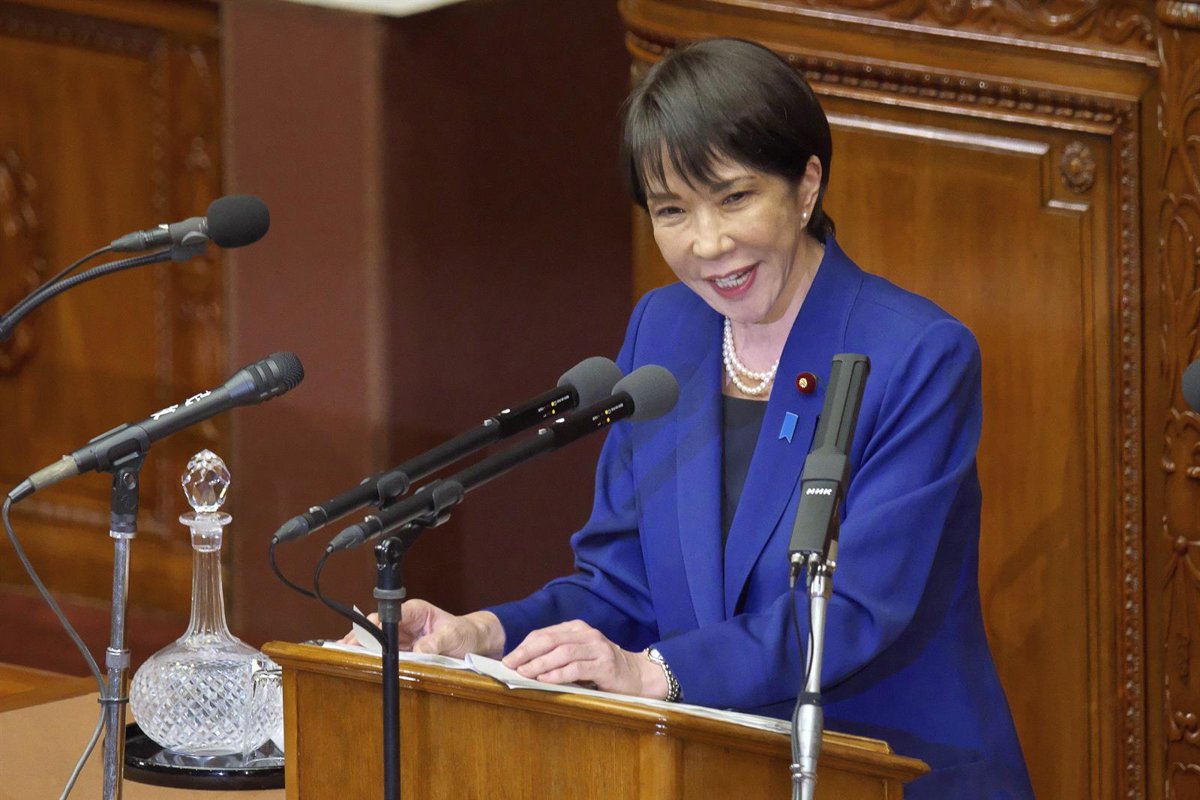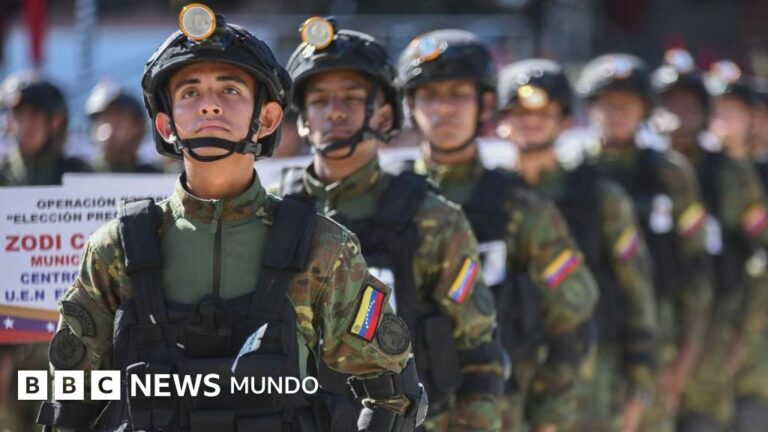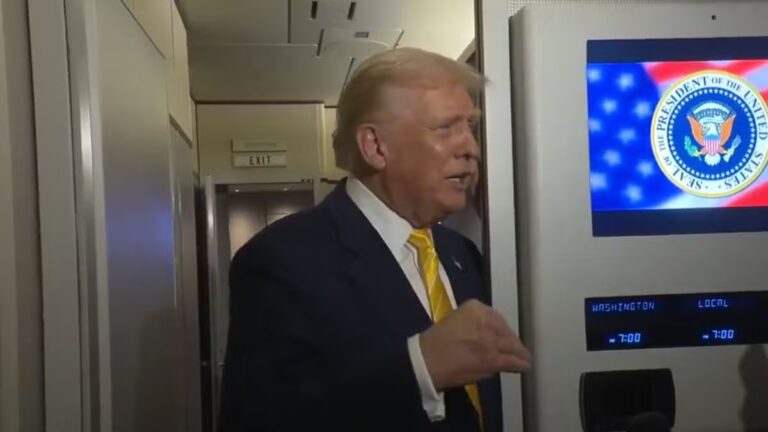
Madrid, November 15 (Europe Press) –
Japanese Prime Minister Sanae Takaichi has reopened the door to a controversial constitutional amendment that would see the Japanese government “permanently” renounce war as a “sovereign right” and bring an end to Japan’s pacifist era that began immediately after World War II, which would have sharply restricted the movement of troops.
By starting negotiations with the government’s main partner, the Japan Innovation Party (JIP), the president will follow in the footsteps of his conservative predecessors, such as the late Shinzo Abe, who championed efforts to implement constitutional reforms aimed at improving Japan’s defense capabilities.
This potential reform has sparked criticism among the Japanese public for years and is a general point of friction, given the deep divisions that exist in Japanese society that have put Japan on the brink of war.
The ruling party, the Liberal Democratic Party (PLD), had already promised during the election period to revise Magna Carta, given the country’s growing challenges in foreign policy.
Although his former coalition partner Komeito has been reluctant to introduce such measures, this is not the first time the party has attempted to submit a proposal granting an exemption from Article 9 of the Constitution.
The new government is working to introduce an “emergency clause” that would allow necessary measures to be taken in the event of a “disaster or armed attack,” and the issue was taken up by partner countries in October, which approved the appointment of Takaichi, the first female head of government.
Japan’s constitution, which was drafted by a postwar American commission and changed the role of the emperor, has not been revised in the decades since it went into effect in 1947. Since then, the reform process has not even begun. Part of the reason is that it requires strong support in Japan’s Diet (parliament).
In order to carry out the reform, in addition to the support of two-thirds of both houses of Congress, the support of a majority of the people in a subsequent referendum is required.
The PLD currently has the support of other organizations committed to achieving significant changes regarding the limits of the army, known in Japan as the Self-Defense Forces, but the government currently does not have more than two-thirds support in the House of Commons, but it does have support in the Senate.
Article 9
The clause is a key part of Japan’s constitution, and many conservative politicians see it as a “humiliating imposition” by the U.S.-led occupation after World War II.
This clause prohibits the Japanese military from possessing “military forces or military power,” and the Liberal Democratic Party says this point should be made more “clarified,” calling for “defining the legal status of the Japanese military” and ending claims that its existence is unconstitutional.
The final draft of the constitution was reviewed by the Japanese authorities and approved by the Diet on October 7, 1946, with only five votes against. The document also includes the Emperor’s accountability to the people and the adoption of pacifist primary goals. Furthermore, he worked hard to introduce a parliamentary system of government that would put an end to the privileges held by the nobility.
In 2014, the Abe government tried to move forward with a similar measure that would allow the right to collective self-defense in cases where “the very existence of the country is threatened and there is a clear risk that the right to life and liberty of its people will be abrogated.”
This allows Japan to voluntarily dispatch troops to third countries as part of peace missions and participate in security operations within the framework of the United Nations. However, it did not have sufficient support at the political or social level, with more than 60 percent of the population opposing it.
tensions with china
This opening of the door to possible constitutional reform comes at a time of heightened tensions in the region, particularly with North Korea and China. Since taking office, Takaichi has raised the possibility of retaliatory measures against China’s large-scale military actions against Taiwan.
This position, reiterated by the president, has made it clear that a possible invasion of the island would endanger the entire “status quo” in the region, and has provoked harsh criticism from China, with a Chinese representative even saying he would “cut the throat” of the Japanese prime minister.
The situation is such that Chinese authorities have declared that this type of action will only lead to “another defeat” for Japan, a country they have invited to “learn historical lessons” from their own mistakes.



